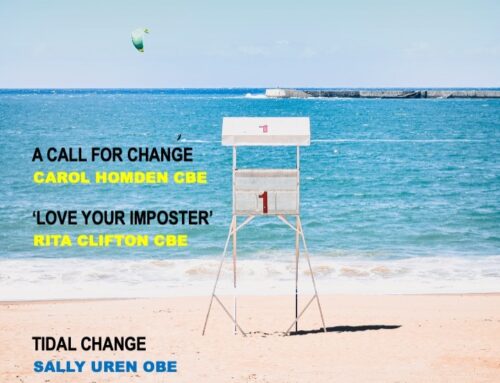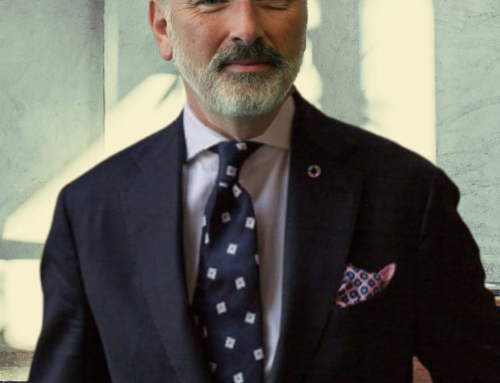Disruption in the Countryside

As we’re seeing from the current lockdown, the effects of a disruptor can be unexpected and provide new ways of looking at important issues. For CPRE, the countryside charity, we’re seeing a longing to be out in the countryside just when so many people are denied access and a realisation how precious our local green spaces are to them. A footpath or country lane once taken for granted now becomes an oasis, a valuable haven providing respite.
We’ve also seen a regeneration of communities, both rural and urban, as neighbours reach out to each other – often for the first time. Part of that is a growing concern for the future of local businesses and amenities. So unexpectedly we find many people suddenly concerned with issues that drive CPRE’s work, and connect with our vision: a thriving, beautiful countryside for all to access and enjoy.
 For everyone
For everyone
We want everyone to be able to enjoy the countryside. That includes people who live there, many currently stuck in ‘transport
deserts’ with no train stations nearby and scant bus services. But it also means people who live in inner cities and can’t afford a weekend stay, making the most of the fresh air, green space and nature.
There’s plenty of evidence that nature is good for our physical and mental health. But often people who need it most are those who are least able to access it. That’s why I was alarmed to see footpaths blocked during the pandemic with signs telling cyclists and walkers to stay away, while polluting and dangerous road traffic continued unhindered. People have understandably been afraid of the virus spreading to rural areas where there might be less healthcare. But once the virus has been brought under control the countryside will need people just as much as people need the countryside.
A disruptor creates opportunity for us to look anew at the familiar. Our countryside is not a museum. It shouldn’t be “preserved in aspic” – we want our countryside to thrive. Too many visions of rural life are created through a lens of nostalgia, often with unrealistic expectations. We need to be thinking about how people want to be part of communities and help reinforce that. Rural life needs to be living, breathing, vibrant and sustainable.
Thriving
And for rural communities to thrive, we must halt the gradual loss of public spaces which everyone can access. Think about all those shared areas you might find in a village, where people can come together: on the green, in the shop, pub or church, at the bus shelter. Those connections keep the countryside alive. We’ve seen some heart-warming examples of communities pulling together during the pandemic, with people going out of their way to care for isolated and vulnerable neighbours. This is the spirit of the countryside.
The government’s thoughts will now turn to restarting our economy. Their plan must embrace rural businesses, which in 2017 contributed 15.8% of England’s Gross Value Added (GVA), the measure of the value of goods and services produced. Whether it’s tourism, farms and horticulture, or the integration with a robust digital infrastructure, our rural economies must reflect their local roots if they are going to be sustainable.
The disruptor of coronavirus also gives the government an opportunity to rethink how it invests in the country’s zero carbon future. It would be too easy to direct funding to outdated infrastructure projects like the planned £27 billion roadbuilding scheme, thinking this would get Britain on the move again. We already know that dependence on cars is bad for us and for the planet. Instead this money could be more wisely invested in much-needed public transport which would be better for communities and the environment. The disruption of coronavirus shows us how important it is to make sure local transport is geared to joining up our communities rather than incentivising the hyper-mobility of the road system.
People are a vital part of the way forward for the countryside. Those who live in rural communities look after it for everyone, and those who visit help to boost the local economy. One of the many cruelties of the coronavirus crisis is the forced separation and isolation of those groups and of communities in general. It’s time to take advantage of this disruption and work towards a new countryside.
One that’s thriving, beautiful, and for everyone.
Crispin Truman OBE
CEO, CPRE: The Countryside Charity
Twitter: @CrispinTruman
https://www.cpre.org.uk/


Disruption in the Countryside

As we’re seeing from the current lockdown, the effects of a disruptor can be unexpected and provide new ways of looking at important issues. For CPRE, the countryside charity, we’re seeing a longing to be out in the countryside just when so many people are denied access and a realisation how precious our local green spaces are to them. A footpath or country lane once taken for granted now becomes an oasis, a valuable haven providing respite.
We’ve also seen a regeneration of communities, both rural and urban, as neighbours reach out to each other – often for the first time. Part of that is a growing concern for the future of local businesses and amenities. So unexpectedly we find many people suddenly concerned with issues that drive CPRE’s work, and connect with our vision: a thriving, beautiful countryside for all to access and enjoy.
 For everyone
For everyone
We want everyone to be able to enjoy the countryside. That includes people who live there, many currently stuck in ‘transport
deserts’ with no train stations nearby and scant bus services. But it also means people who live in inner cities and can’t afford a weekend stay, making the most of the fresh air, green space and nature.
There’s plenty of evidence that nature is good for our physical and mental health. But often people who need it most are those who are least able to access it. That’s why I was alarmed to see footpaths blocked during the pandemic with signs telling cyclists and walkers to stay away, while polluting and dangerous road traffic continued unhindered. People have understandably been afraid of the virus spreading to rural areas where there might be less healthcare. But once the virus has been brought under control the countryside will need people just as much as people need the countryside.
A disruptor creates opportunity for us to look anew at the familiar. Our countryside is not a museum. It shouldn’t be “preserved in aspic” – we want our countryside to thrive. Too many visions of rural life are created through a lens of nostalgia, often with unrealistic expectations. We need to be thinking about how people want to be part of communities and help reinforce that. Rural life needs to be living, breathing, vibrant and sustainable.
Thriving
And for rural communities to thrive, we must halt the gradual loss of public spaces which everyone can access. Think about all those shared areas you might find in a village, where people can come together: on the green, in the shop, pub or church, at the bus shelter. Those connections keep the countryside alive. We’ve seen some heart-warming examples of communities pulling together during the pandemic, with people going out of their way to care for isolated and vulnerable neighbours. This is the spirit of the countryside.
The government’s thoughts will now turn to restarting our economy. Their plan must embrace rural businesses, which in 2017 contributed 15.8% of England’s Gross Value Added (GVA), the measure of the value of goods and services produced. Whether it’s tourism, farms and horticulture, or the integration with a robust digital infrastructure, our rural economies must reflect their local roots if they are going to be sustainable.
The disruptor of coronavirus also gives the government an opportunity to rethink how it invests in the country’s zero carbon future. It would be too easy to direct funding to outdated infrastructure projects like the planned £27 billion roadbuilding scheme, thinking this would get Britain on the move again. We already know that dependence on cars is bad for us and for the planet. Instead this money could be more wisely invested in much-needed public transport which would be better for communities and the environment. The disruption of coronavirus shows us how important it is to make sure local transport is geared to joining up our communities rather than incentivising the hyper-mobility of the road system.
People are a vital part of the way forward for the countryside. Those who live in rural communities look after it for everyone, and those who visit help to boost the local economy. One of the many cruelties of the coronavirus crisis is the forced separation and isolation of those groups and of communities in general. It’s time to take advantage of this disruption and work towards a new countryside.
One that’s thriving, beautiful, and for everyone.
Crispin Truman OBE
CEO, CPRE: The Countryside Charity
Twitter: @CrispinTruman
https://www.cpre.org.uk/





